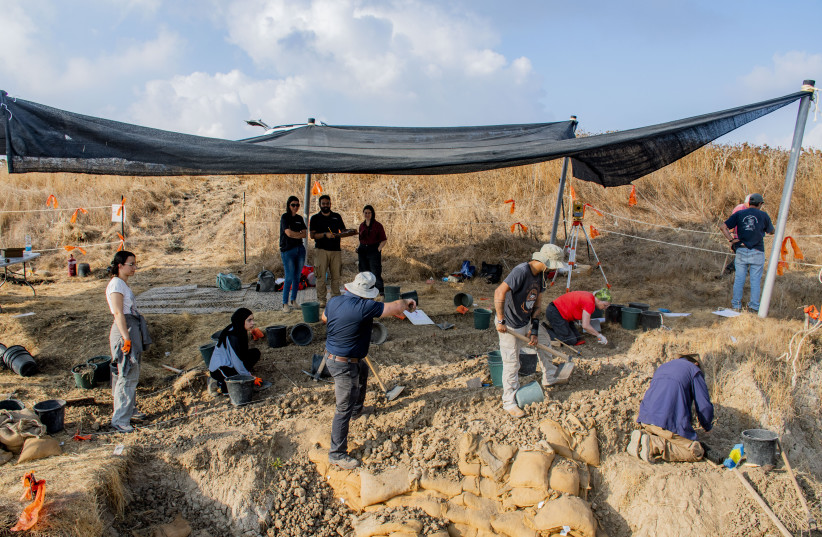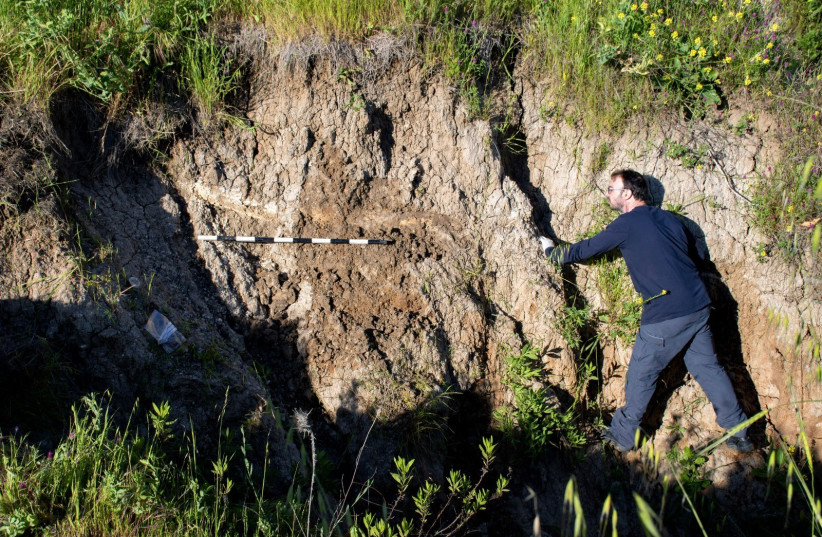An completely unscathed, ancient elephant tusk dating to around half-a-million years ago was uncovered by archaeologists at Kibbutz Revadim in Israel’s South, the Antiquities Authority (IAA) announced on Wednesday.
The two-and-a-half meter (just over two-foot) tusk, discovered by archaeologists and paleontologists from the Ben-Gurion University of the Negev, Tel Aviv University, the Dan David Center for Human Evolution and Biohistory and the IAA, belonged to the straight-tusked elephant, an extinct species that roamed modern-day Israel during the Middle and Late Pleistocene period.
It was discovered during a two-week excavation project – aptly named “Operation Elephant” – to find fossil remains of the elephants that lived in prehistoric Israel.
The tusk was “exceptionally well-preserved,” the IAA noted. It was first uncovered by Jerusalem biologist Dr. Eitan Mor.
Mor said he visited the excavated area out of curiosity after reading about ancient species of elephants.
“To my surprise, I spotted something that looked like a large animal bone peeping out of the ground,” the biologist recalled. “I realized that it was the real thing, so I rushed to report it to the authority.”

What was the now-extinct straight-tusked elephant?
The straight-tusk elephant lived mostly in Europe and Western Asia, as far east as Iran and as far west as the Iberian Peninsula.
Recovered fossils suggest the extinct elephant weighed around 11.3-15 tons and reached up to 4-4.2 meters in height, larger than present-day African elephants, according to IAA archaeozoologist Dr. Lee Perry-Gal.

As per Perry-Gal, the species appeared in and around Israel around 800,000 years ago and disappeared some 400,000 years ago.
Israel's South: A hotspot for archaeological findings
The area near Kibbutz Revadim is a hotspot for archaeological findings, excavation director Avi Levy said.
“From our previous archaeological excavations at Revadim, we knew that the site was settled in the Late Lower Paleolithic period, as stone and flint tools, as well as animal bone remains, were retrieved,” he said.
However, he added, the preserved elephant tusk is “something else.”
“This is the largest complete fossil tusk ever found at a prehistoric site in Israel or the Near East,” Levy declared.
